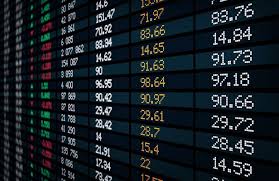Avoiding market monomania

There’s a dangerous kind of comfort spreading through the investing world
It’s called market monomania — the quiet conviction that the only stock markets worth investing in are U.S. ones. S&P 500, Nasdaq, Big Tech, the Magnificent Whatever — it’s all become shorthand for ‘the market’” And in many portfolios, that’s literally true. Everything else — Europe, Asia, emerging markets, even small caps — is treated as background noise
But that comfort? It’s an illusion. And a fragile one
The American centre of gravity
It’s easy to see how we got here
For over a decade, the U.S. market has crushed almost every rival. The tech boom, dollar dominance, and sheer global brand power made diversification look old-fashioned — even naïve. Why bother owning laggards when you can just buy the winners and watch the line go up? Every dip was a buying opportunity. Every Fed pivot a starting gun. Every global shock yet another reason for capital to run home to U.S. assets
But that’s precisely how monomanias are born — not through greed, but through habit
The risk of the single story
The U.S. market isn’t invincible. It’s concentrated — absurdly so
A handful of companies now drive an outsized share of global equity returns. A few percentage points of GDP growth, a few basis points of inflation, a whisper from the Fed — and the whole narrative swings. When your portfolio lives and dies by the same handful of names, you’re not diversified. You’re just levered to a story that’s been working so far
History doesn’t treat those stories kindly. Japan in the 1980s looked unstoppable. The Nikkei still hasn’t recovered
The world is wider than Wall Street
There are companies in Asia building the infrastructure for the next decade. European firms with fortress balance sheets and global reach. Emerging markets that are messy, yes, but full of demographic firepower and innovation
 Diversification isn’t about pessimism — it’s about humility. It’s about admitting that the future might not rhyme with the past decade of U.S. dominance
Diversification isn’t about pessimism — it’s about humility. It’s about admitting that the future might not rhyme with the past decade of U.S. dominance
Don’t mistake familiarity for safety
Most investors think they’re chasing returns, but often they’re chasing comfort. The U.S. feels safe because it’s familiar — its brands, its language, its data transparency. But comfort and safety aren’t the same thing. Overreliance on any one market — however mighty — is still concentration risk in disguise
So take a breath. Zoom out. Rebalance
As always, caveat emptor!
Leave a reply
You must be logged in to post a comment.







